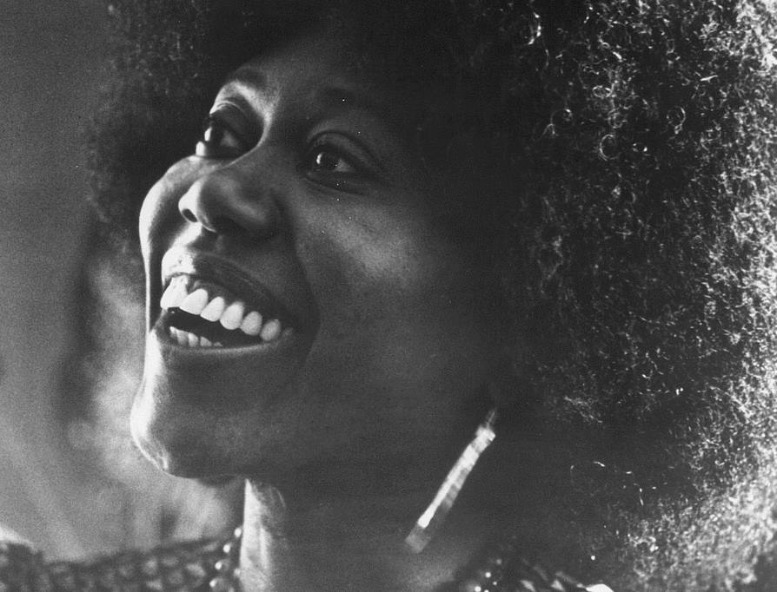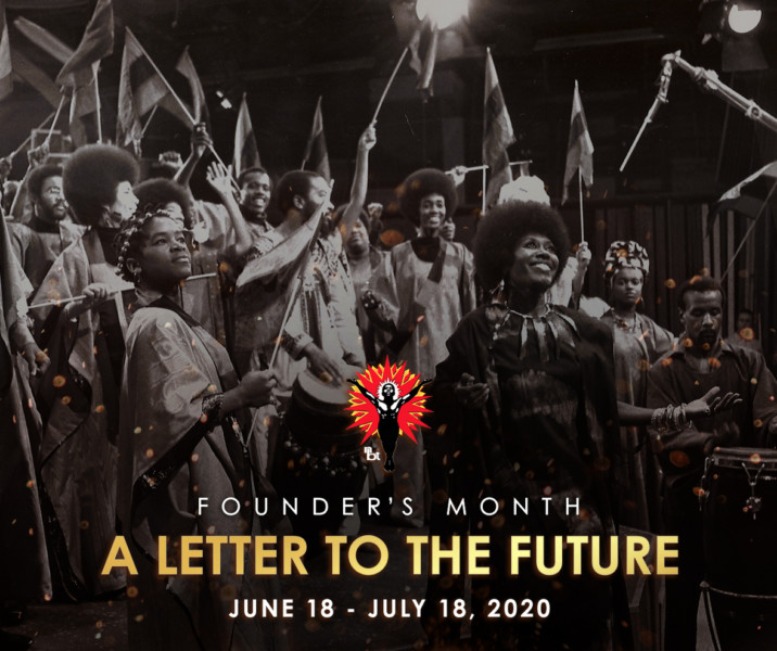The recent shifts in our cultural conversation these last few months have been very enlightening. The general public is starting to understand how deeply racism and anti-Blackness are ingrained in the very fabric of our society. With the rise of social media, incidents of racial violence becoming viral sensation is becoming a commonplace phenomenon. People everywhere are drawing parallels between the current moment and the Civil Rights Movement and other racial uprisings throughout the American timeline. It begs the question: “Are we actually any farther than we were 10 years ago? 25? 50?” Thankfully, the National Black Theatre provides a lens through which we can answer this question for ourselves.
In 1991, Dr. Barbara Ann Teer, founder of the National Black Theatre, wrote a “Letter to the Future” and sealed it away in a time capsule. Now, in 2020, as part of their annual Founder’s Month celebrations, New York City’s National Black Theatre has unearthed the time capsule and released the text of the letter to the public.

Dr. Teer’s letter operates on several different levels. Firstly, she speaks to her present time by outlying hopes for the future.
“I wonder if we have evolved into a higher human being than those Black people living on Earth in 1991…I pray that you have built strong African American Institutions that give praise and honor to your ancestors.”
You can tell a lot about a time period by what a person hopes for the future because it gives you a glimpse at the holes in that society. I think about how much acclaim the National Black Theatre has and how much it has become a staple in our theatrical community. I think about the Black playwrights of the last ten years who have helped forge the way for Black artists of my generation to receive acclaim: Robert O’Hara, Antoinette Nwandu, James Ijames, and so many more. Many theaters have joined NBT in their mission to provide spaces for uplifting Black voices, exactly as Dr. Teer hoped.
Then, the tone of the letter shifts. She goes on to talk about the sacrifices made for the present that we live in, and the successes that we should have achieved by now.
“We made great sacrifices so that you could take your rightful place on the planet and become the cultural leaders…We should by now have learned to honor worship the Self because God lives within each of us as us.”
Where the first half of the letter made me appreciate the strides that we’ve made, this half only proves how far we have left to go. There are many Black artists that I would give the title of “cultural leader.” However, I think we are still light years away from being at our “rightful place.” Black artists still have to work to be above and beyond to be able to get their seats at the table, and, even then, people are constantly trying to tear them down and minimize their accomplishments. As a result, we’re constantly holding ourselves to impossible standards to make sure that we get what we feel we deserve and punish ourselves for any signs of weakness or inconsistency. This phenomenon leads to the astronomical numbers of Black people with untreated mental illnesses. We definitely have a lot of work today as a community before we can “worship the Self.”

Lastly, Teer talks about the future and mission of theater as a whole: an institution and a spiritual art form.
“Our Theatres must…first and foremost teach people what it means to be human, teach people how to love themselves, how to honor themselves.” On the surface, a lot of companies can unite under this banner naming the purpose of creating art. However, Teer goes on to specifically talk about her plans for NBT: “Our plays were an acknowledgment of our humanity. Our Institution was a permanent space of grace.”
Unfortunately, there are plenty of examples of spaces that haven’t been described as graceful throughout the country. We have a lot to learn when it comes to creating a widespread environment of grace throughout the theatre community. This section should light a fire beneath the American theatre because these goals are within our reach, and it is our duty as artists to fulfill them.
Reading this letter at this time forced me to look inward and evaluate my place in the world as a Black artist and what I want the world to be for those that will come after me. I became very intrigued as to how other people interpreted the letter and what they’d want to write to the future of Black generations of theatre-makers. I asked around and compiled some of my favorites.
What would your Letter to the Future say?
What do you want the future of Black generations to know?
“Be unapologetically yourself on and off stage. Don’t be afraid to ask questions, make yourself heard, and experience a wide set of emotions. The world has told Black artists long enough to make art that is aesthetically pleasing to white audiences. Make the art you want to see, make it raw, make it real, make it unapologetically you.”
Shaun Morgan, 22
Los Angeles, California
@shaunthesagg
“I hope that in the future, there is a moment in which a young Black child is watching the TV. They’re flipping through all the possibilities of their future, and they can see themselves in a variety of different people: a president, an astronaut, a writer, a scientist, a musician, a Nobel prize laureate. That’s the future our generation of artists is creating. “
Dylan Jackson, 22
Port Luci, Florida
@dylantjackson1
“I’d tell the future of the diaspora, to please please please take care of yourselves and each other. As an entire community of Black people, we all share similar struggles across the globe. We need each other, and we need to be there for each other. Uplift and make space for all your Black siblings. Their likes, dislikes, bodies, voices, complexions, stories, hair texture, partners, dialect, and existence. The world may try to mold you, but you define yourselves. And ain’t nobody gonna hype you up for just being you like us. So let’s just do that.”
Briana Gause, 23
Philadelphia, PA
@omg_presents
“It’s not the burden that breaks your back but the way you carry it. I’ve heard that for so long and having to experience it myself, I know it to be true. When you are dealing with generational trauma and you feel like you’re the one in the family to break said trauma, it feels like you have the whole world on your shoulders. Breathe. You may not know it, but you come from some of the strongest and most brilliant humans to ever exist. Your mind is the most powerful weapon that you could ever have, so use it. Create a blueprint of success in your mind and speak it into the world and believe it with everything you have inside of you. That said, listen to your body and never overextend yourself. A Subtlety or the Marvelous Sugar Baby wasn’t built in a day, so pace yourself and never give up”
Lulu Cornelious, 22
Dallas, Texas
@umicomplexion
To visit an extensive database of Black theatre companies, click here.
Author
-

Dezi Tibbs (they/she) is obsessed with exploring how we fabulate and perform our identities. As a freelance dramaturg, Dezi has facilitated the development of dozens of original and established plays and musicals with esteemed collaborators such as Sam Pinkleton, Lileana Blain Cruz, Max Vernon, Erin Courtney, and Truth Future Bachman. Dezi's theatrical work has been featured on stages and festivals nationwide including New York Theatre Workshop, Philadelphia Fringe Festival, Powerhouse Theatre, Joe's Pub, Baryshnikov Arts Center, Breaking the Binary, and Lincoln Center. You can read more of their writing on their blog Dezi's Thought Bubble, American Theatre, TDF Stages, and The Civilians' Extended Play.
View all posts









